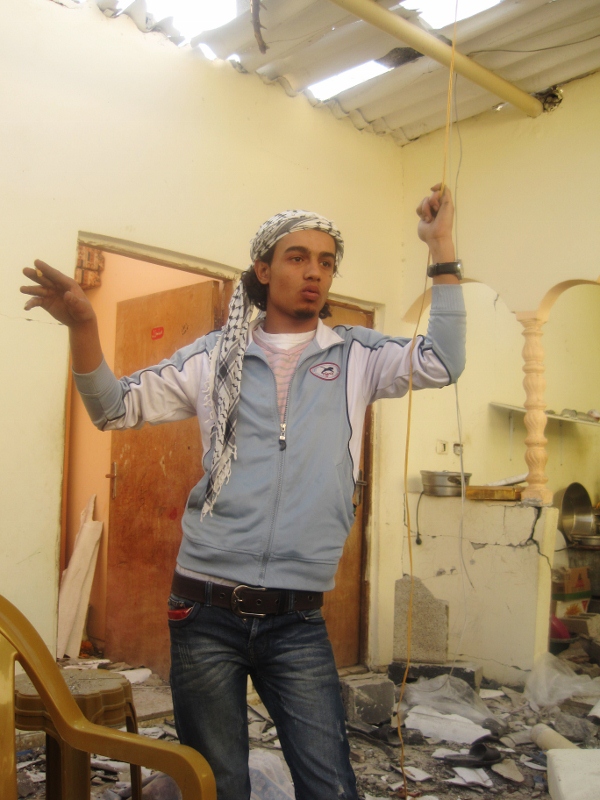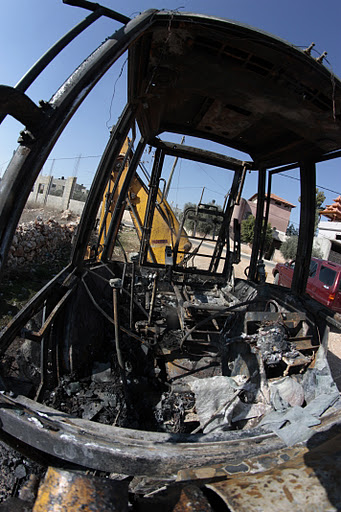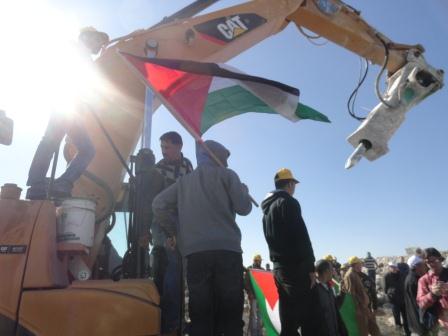-
Still casting lead: Israeli air force attack kills 2, injures 12 in single family
by Radhika Sainath 9 December 2011 | Notes from Behind the Blockade Update: Midgdad’s 12-year-old cousin died yesterday. “This is the occupation,” a neighbor mumbled as we stepped into what remained of twenty-year-old Migdad El Zalaan’s cement-block home in the north of Gaza City this afternoon. The Israeli Air Force dropped the first of three bombs […]
-
In Photos: The devastation of the Price Tag campaign in Bruqin
by Amal 8 December 2011 | International Solidarity Movement, West Bank The smell of fire and sorrow was evident in Bruqin today, which is located to the west of Salfit in the northern area of the West Bank. Even eight hours later the feeling of loss populated the air. At approximately 2:30 AM a group of […]
-
Locals protest as Israeli barrier rips through Qalandia
7 December 2011 | International Solidarity Movement, West Bank Today, in the town of Qalandia, north of Ramallah, Palestinian and international solidarity activists tried to stop the illegal construction of the separation wall. The Israeli government issued a map that shows the new tracing of the wall. According to this map the wall would take more […]
Action Alert An Nabi Saleh Apartheid Wall Arrests BDS Bethlehem Bil'in Cast Lead Demonstration Denial of Entry Ethnic Cleansing Farmers Gaza Global Actions Hebron House Demolition International law Israeli Army Jerusalem Live Ammunition Nablus Ni'lin Prisoner Ramallah Rubber-coated steel bullets Settlement Settlers Settler violence Tear-Gas Canister Video



